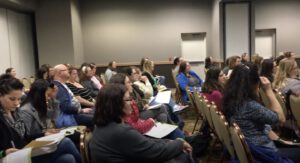Homeschooling trends up across U.S. demographics
Recent data from the U.S. Census Bureau shows that during the pandemic, homeschool rates significantly increased in the United States—increases seen across demographics.
The highest increase…
Recent data from the U.S. Census Bureau shows that during the pandemic, homeschool rates significantly increased in the United States—increases seen across demographics.
The highest increase occurred in the respondents who identified as Black or African American. In 2020, the figure jumped from 3.3 percent homeschooling in the spring to 16.1 percent homeschooling in the fall – more than five times in less than five months.
The increase was significant but slightly less pronounced among Asian and Hispanic demographics. Approximately double the number of families were homeschooling in the fall of 2020, compared to the spring before the lockdowns.
“I have seen a slight increase in homeschooling amongst Black and Asian families over the years. But I’ve seen an increase across the board, including several races,” said Keesha Basel, a Black homeschool mom in the Kansas City area. “I have noticed an increase since 2020.”
Choosing to homeschool
Basel started to homeschool her daughter, who was then kindergarten age, in 2015. She had no previous experience with homeschooling.
“At the time, I was more or less forced to take a break from my career due to illness, and we weren’t 100 percent confident in the way public schools were headed,” she said.
Basel said several factors influenced her decision to homeschool. Among these were the freedom to choose what is taught, tailoring the child’s learning based on their strengths and interests, and flexible scheduling.
“Being involved in my children’s daily progress helps me gauge what we need to spend more or less time on,” she said.
Along with this flexibility comes a certain set of challenges. Because of the ongoing nature of homeschooling, Basel said, families should make sure they watch for periods of burn-out.
“We, as parents, are truly educating and training our children 24 hours a day,” she said. “Adding coursework on top of that can cause burn-out at times.”
During the lockdowns, Basel said her homeschool continued much the same as it had before. However, they used Zoom instead of meeting in-person for homeschool co-ops, communities, and extracurricular activities.
Since 2020, Basel says, she has talked with several people who are considering homeschool. One of the main reasons against homeschooling she hears is the lack of ability to stay home because the parents work full-time jobs.
“I think this may impact Black families more since, statistically, there are more single-parent Black families,” Basel said.
While Basel was homeschooling years before the pandemic, she said she is relieved her family chose that decision even before 2020 and the lockdowns.
“We will continue to homeschool,” she said, “in light of the current topics being taught in schools.”



